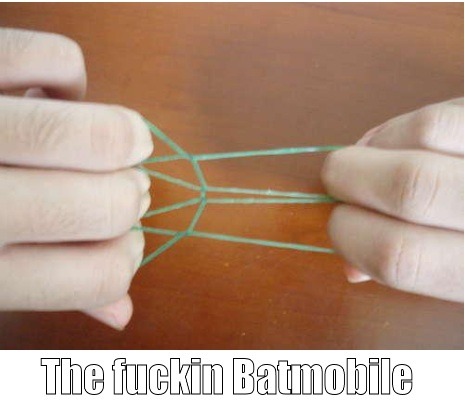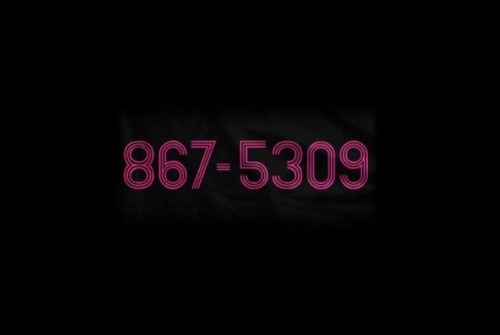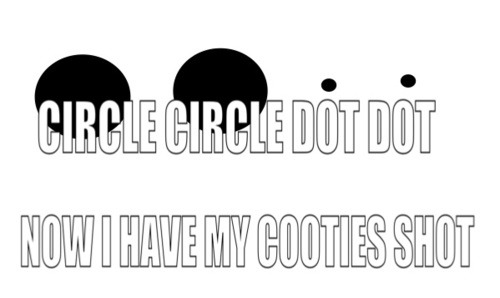Written by tinybuddha

by Lori Deschene
“Your work is to discover your world and then with all your heart give yourself to it.” ~Buddha
“Big flud strikes Revere!”
That was the headline of the newspaper I made with my sister when I was six. I hadn’t yet honed my skills as an editor, but I knew a good fake story when I heard it.
Eight years later, while wading through my anger toward several people who’d hurt me, I wrote a short book called The Line of the Virtues about the grey area between good and bad. An older coworker at my afterschool job asked, “Are all kids this deep these days?”
Somewhere between six and fourteen, I’d found my calling: I was a writer who liked to tackle weighty topics. Though I took a lot of detours between realizing that and pursuing writing as a career, ultimately, it brought me to Tiny Buddha—my sweet spot for personal and professional fulfillment.
Looking back, I realize I took those detours solely because I was scared. I thought writing was one of those careers that only a few people get to do. I figured it was better not to try than to try and fail, because then I could pretend I wasn’t writing by choice.
I remember the first time I realized I was hiding from my passion. I was 26 years old, and part of a marketing team that was walking across the country to promote a number of fitness products.
A coworker and I got into a ridiculous fight over the meaning of a word. She’d formerly worked as a comedy writer for radio shows—and, for the record, she was right about the meaning. Defending her stance, she shouted, “Don’t you think I’d know? I’m a writer!”
I responded, “Me too!”
Then she argued, “Not really!” Further drilling the point home, she continued, “Just wait ‘til you move to San Francisco and call yourself a writer there. Your MySpace blogs just aren’t going to cut it!”
Since I’d held nothing back from Tom, this hurt—until later when I realized she’d given me a gift. She’d smothered me with the truth, and I had no choice but to acknowledge she was right yet again.
I got a writing job the second day after I arrived in San Francisco. I was writing about senior care, a topic that interested me about as much as the mating habits of ants. But it was a decision to step onto a new path, knowing full well that, at that point, I had no idea where I was going.
This is true for all of us whenever we start doing something new. There are never any guarantees about where it will lead, and that can be a scary thing, particularly if your current situation allows you to comfortably meet your responsibilities.
There simply isn’t a one-size-fits-all formula for discovering what you’re passionate about and then transitioning to a new career. That being said, I’ve learned a few things about doing what you love for work—and I’ve learned that a lot of what I previously believed simply is not true.
MYTH #1: DO WHAT YOU LOVE AND THE MONEY WILL FOLLOW.
If there’s one thing that holds us back from pursuing our passions, it’s the fear of not being able to take care of ourselves (and our families, if we have them). It’s what keeps us in unfulfilling jobs: the guaranteed paycheck that’s enough (or, even harder to walk away from, more than enough).
But this idea ignores the fact that succeeding in anything requires a great deal of work and uncertainty. Risk is always part of the equation. For everyone who has made a good living doing something they enjoy, there are countless other equally talented people who were not able to do it.
This doesn’t mean we shouldn’t pursue our passions; it just means we’re more apt to feel satisfied doing it if we define success in terms beyond financial gain. That might mean we need to live on less. It might mean we need to balance our passion with other work.
Of course, you may create a situation where your passion becomes lucrative; if it wasn’t your strongest motivation, it will be icing on the cake.
Do what you love and enjoyment will follow. Do what you love and you will feel more fulfilled. Do what you love and the money will seem less relevant. These things I’ve found are true.
MYTH #2: LEAP AND THE NET WILL APPEAR.
It’s just plain scary to leap, especially when you have no idea where you’ll land or how. A lot of us get caught in the planning stage because we want to know with absolute certainty we won’t make a mistake we’ll one day regret.
So we wait, we gather information, we imagine all possible outcomes and plan to avoid negative ones, and generally anchor ourselves with good intentions that, in some cases, never lead to action.
John Burroughs wasn’t entirely misguided with this idea—it motivates us to get going, since it suggests we can have faith that we won’t fall flat on our faces. But the reality is that we sometimes we will.
What’s important to realize is that we are strong enough to get back up if this happens, and we can do it knowing that every fall is valuable. Every time a net doesn’t appear, we learn a little more about how to weave one for ourselves. We also learn to be comfortable in the drop, which, if we’re honest, is where we always live. Life is uncertain, whether we take large risks or not.
It’s not just the leaps that dictate our success; it’s our capacity for soaring through the unknown, and our willingness to learn from the landing.
MYTH #3: DO WHAT YOU LOVE, AND YOU’LL NEVER WORK A DAY IN YOUR LIFE.
With any job or business, you often need to do things you wouldn’t choose to do. I love writing and chatting with people on the blog and social media pages, but I don’t particularly enjoy marketing—and I’m not a big fan of pitching myself for future opportunities. These two things always feel like work, as do the many administrative tasks that keep this site running and growing.
But that’s not the only reason doing what you love can feel like work. There’s also the inevitability that most tasks feel different when they become things we need to do to earn. In a related post, blogger Clay Collins referenced a 1956 psychological experiment that showed people are more likely to find intrinsic motivation when they’re paid very little to do a task. When the monetary compensation increases, suddenly the money becomes the motivation, and as a result, it feels less enjoyable.
I suspect this comes down to freedom: we tend to best enjoy the things we feel we’re doing entirely by choice. Since work, in any form, requires commitment that supersedes our moment-to-moment whims, we need to know going in that even the most enjoyable paths will have their ups and downs.
If we can do this, we’ll be far more apt to stick with something when it doesn’t meet the romantic image we may have visualized. That’s what it means to do what you love for work: to remember that even if it’s something you’re passionate about, there will be some aspects that feel less exciting than others.
MYTH #4: ANYONE CAN DECIDE AT ANY TIME TO DO WHAT THEY LOVE.
This may seem contrary to conventional wisdom, but I’ve learned that it it’s not always smart to drop everything and follow your passion. I’m not saying we should get stuck in the waiting game—forever analyzing, planning, and stagnating. It’s true that we can start incorporating our passions into our lives at any times.
I’m suggesting that sometimes we need to do a little legwork first if we want to turn our passions into careers; and that legwork is different for everyone depending on their circumstances. Flexo from Consumerist Commentary made an interesting argument using Maslow’s hierarchy of needs.
Our physiological needs, like air, food, water, and sleep, are on the bottom of the pyramid. Above that, there’s safety, which encompasses finances, job security, health security, and physical safety. Above that, our social needs, including love and family. Above that, esteem, encompassing self-respect, accomplishment, and recognition. And lastly, at the top of the pyramid, there’s self-actualization.
Flexo suggested that pursuing our passions is akin to self-actualization, and we’re best able to do that when our basic needs are met.
History has proven this isn’t universally true. Some of the most passionate, successful people are those who have sacrificed many of their needs to push toward one all-encompassing goal.
But the bottom line remains: not everyone has the luxury of dropping everything and taking a massive risk right now. If you have a family, you may need to do extensive planning to transition to a new field. If you live paycheck-to-paycheck, you may need to overlap your current job with your passion in order to eventually make a living through the latter.
This may seem discouraging—or it could seem empowering if it motivates you to take an honest look at your current situation and make a plan based on what makes sense given your unique responsibilities and needs.
We all have different advantages, some based on good fortune and some based on choices we’ve previously made. We can only ever start from where we are. If we have the strength to play our hands, instead of questioning why we don’t hold different cards, then we can decide at any time to work toward doing what we love.
It’s not as simple and catchy as the American Dream, but it’s a far more realistic representation of what’s possible for us.
The important thing is to remember that so much is still possible. We all deserve to enjoy the way we spend our days. If we’re willing to dream, work hard, learn, and navigate uncertainty, we all have the potential to do it.
Before you go: My good friend Scott Dinsmore, a Tiny Buddha contributor and founder of Live Your Legend, just launched a new course called Live off Your Passion: An Unconventional Guide to Finding Passion and Getting Paid to Do Work You Love. It includes more than a dozen expert video interviews and numerous free bonus items, including Tiny Buddha’s Handbook for Peace and Happiness.
You can get 30% off until this Friday at midnight—and Scott’s offering a money-back guarantee to anyone who doesn’t make money in a new career after taking his course. I rarely promote online courses, as I wouldn’t take most of them, but I’ve been impressed and inspired by Scott, and I believe he will help a lot of people! You can learn more about the course here. (I am an affiliate, meaning a portion of sales made through this link will help support Tiny Buddha.)
Photo by kmlb*
Bonus: If browsers were guns.





































 Whether you are self-taught, fresh out of school, or a design veteran, continuing education has invaluable long-term effects on your ability to stay competitive and business savvy.
Whether you are self-taught, fresh out of school, or a design veteran, continuing education has invaluable long-term effects on your ability to stay competitive and business savvy.








